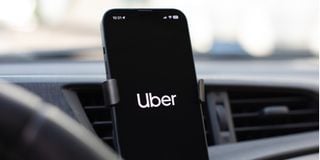Regional watchdog to Uber: adjust customer contracts to local laws

Comesa says it has reviewed Uber's operations and found anomalies that go against the regional regime on consumer protection.
A regional watchdog on anti-competitive practices wants taxi-hailing operator Uber to adjust its contracts to suit laws that protect local users.
The Comesa Competition Commission (CCC) says it has reviewed Uber's operations and found anomalies that go against the regional regime on consumer protection.
The CCC, which polices firms in the Common Market for East and Southern Africa (Comesa) bloc, also protested a section in the contract offered by Uber that compels the parties to its service to resolve disputes under Dutch laws. The Commission wants that changed to prioritise local laws in the countries where Uber operates.
Uber, headquartered in the Netherlands, first launched in Sub-Saharan Africa in 2013 in South Africa, but soon expanded to Nigeria, Ghana and Cote d’Ivoire in West Africa, as well as Kenya, Uganda and Tanzania in the East African region.
However, the company’s contract included clauses that did not favour customers, while also designating The Netherlands as the jurisdiction to resolve disputes between the parties, which the watchdog finds “unacceptable”, Dr Willard Mwemba, the CCC Chief Executive Officer, told journalists at a recent press conference.
“In the common market, Uber is prevalent in Kenya, Uganda and Egypt. In their contract, they say the price can change at any time and services can be terminated at any time in the course of the journey. And in case of a dispute, the law that would apply is the Dutch law. We cannot accept that,” he said.
Despite more than a decade of operating in the region, some drivers on the app reckon that Uber is still operating under a legal framework that is skewed towards the company at the expense of users.
“Everything is done online: your application for the job, filing complaints...it’s all online. I have been lucky because they address most of my complaints. But if I have to go to Europe to resolve a serious dispute, then it’s not favourable,” says Amyline Atukunda, a Ugandan Uber driver.





